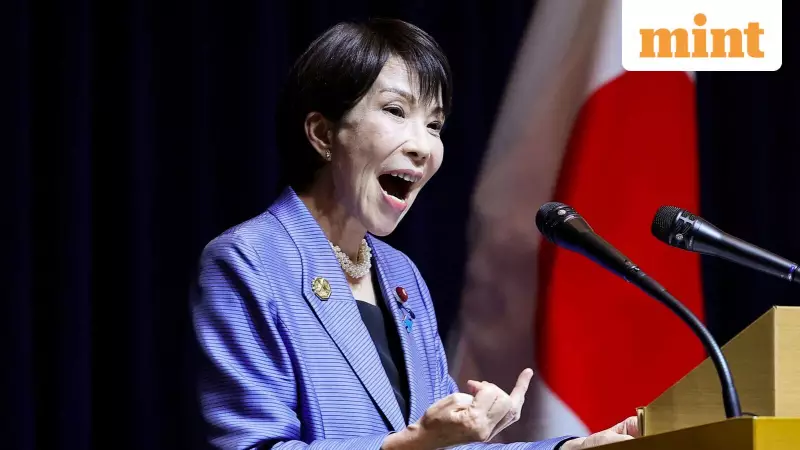
In a significant move to de-escalate rising diplomatic friction, Japan has sent a high-ranking official to China for crucial talks. This development comes on the heels of a sharp downturn in Tokyo's stock market, where shares of companies reliant on Chinese tourism took a substantial hit.
Diplomatic Mission to Mend Fences
According to reports from public broadcaster NHK, Japan dispatched a senior foreign ministry official to China on Monday. The envoy, identified as Masaaki Kanai, a director-general at Japan’s Ministry of Foreign Affairs, is scheduled to meet with his Chinese counterpart, Liu Jinsong, on Tuesday. This high-level meeting, reported by Kyodo news agency, is seen as a direct effort to calm the waters between the two Asian powers.
Market Turmoil Following Travel Alert
The urgency for diplomatic engagement was underscored by a dramatic reaction in the financial markets. Japan’s tourism-exposed stocks slumped on Monday after Beijing issued a formal travel and study alert for its citizens planning to visit Japan. The advisory sparked immediate concerns that a potential drop in Chinese visitors would severely impact Japan's tourism sector.
The sell-off was pronounced and widespread:
- Shiseido, the beauty and cosmetics giant heavily dependent on Chinese consumers, saw its shares fall by a steep 9.08%.
- Isetan Mitsukoshi Holdings, the parent company of major department store chains, plunged by more than 11%.
- Oriental Land, the operator of the Tokyo Disney Resort, dropped by 5.68%.
- Airline operator ANA Holdings declined by 3.35%.
- Hankyu Hanshin Holdings, a major player in rail, retail, and hotels, was trading 1.99% lower.
Root of the Dispute: Comments on Taiwan
The chain of events was triggered by remarks from Japanese Prime Minister Sanae Takaichi earlier this month. She stated that the use of military force in any Taiwan conflict could be considered a “survival-threatening situation” for Japan. Beijing reacted swiftly and harshly, accusing Japan of interfering in China's internal affairs and labeling Takaichi's comments as “egregious.”
While Prime Minister Takaichi refused to retract her statement, she did promise to adopt a more cautious tone when discussing such sensitive issues in parliament. In response to these remarks, China's Foreign Ministry Spokesperson, Lin Jian, stated that Japan's actions had “inevitably raised strong questions and concerns among its Asian neighbors and the international community.”
Citing the perceived risk from Takaichi’s comments, Beijing issued its travel advisory on Friday. Chinese airlines quickly followed suit, offering full refunds or free itinerary changes for scheduled flights to Japan. Tokyo, through its top government spokesperson Minoru Kihara, urged Beijing to keep its response measured and take “appropriate measures.”
Significance of Chinese Tourism to Japan
The market's strong reaction highlights Japan's deep economic reliance on Chinese tourists. According to data, Japan was the fourth-most popular destination for Chinese travelers in the first eleven months of 2024. More critically, nearly one-fifth of all international visitors to Japan in 2024 came from China, translating to approximately 7 million people. This massive influx makes the Chinese market a cornerstone of Japan's tourism industry, and any sustained drop would have significant economic consequences.
The diplomatic mission led by Masaaki Kanai is therefore not just a political gesture but a crucial step towards stabilizing a vital economic relationship. The outcome of Tuesday's talks will be closely watched by investors and policymakers alike.






